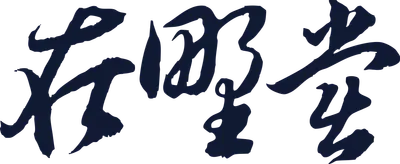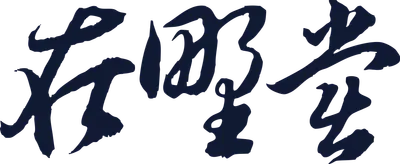作者:田永德 编辑:冯仍 胡丽莉 责任编辑:罗志飞
许多人问我,为什么会参与中国民主化运动。这并不是一个突然的决定,而是我在看清现实之后,逐步形成的坚定选择。
加代,号称“深圳王”,本名任家忠。网络上查不到他的祖父是谁,有人说他是任仲夷的后代。加代于2020年因病去世。按他所作所为,被枪毙几次都不为过。他背后的靠山包括邓小平之子邓朴方、江泽民之子江绵恒、李鹏之子李小勇、周永康之子周斌等。他的“兄弟”还有山东的聂磊、山西的李满林、黑龙江的李正光等人。
最近,我在百度视频上听了不少关于加代及其朋友的故事。听完之后的感受是:尽管社会上将他描绘为仗义疏财、胆大生猛的人物,但归根结底,他仍是个仗势欺人、横行霸道的恶棍。人们所谓的“巧取豪夺”,实际上就是毫无底线地草菅人命、穷凶极恶。即便他们的对手同样不是善类,也不能掩盖他们自身的罪恶本质。
加代仗着后台,在社会上横行无忌,动辄纠集数百人持枪抢矿、抢生意,打压竞争对手。即使事情闹到了公安或武警那里,也总有人出面“摆平”,为其开脱。
中国人往往被中共电视上那些领导人的讲话所蒙蔽,失去了独立思考的能力。但现实是,一旦这些人遇到麻烦,他们所谓的“靠山”处理事情时不是威胁就是拉拢,要不就是直接“拿下”。手段不同,本质却一样——他们所有的考量,归根结底都是利益,毫无例外。
这也解释了习近平为何能够第三次连任。我得出的判断是:“习近平已经将各方利益重新分配妥当,因此得到了他们的支持。”
从加代及其背后势力的行径中,我逐渐意识到,这类现象绝非个别人的腐败与暴力,而是中共体制内部深层权力勾结的冰山一角。所谓“法治”在这些人面前形同虚设,而整个社会资源的分配和运作,早已被少数掌权者及其家族垄断。正是在这样的环境下,我开始重新审视我曾相信的“体制内改革”的可能性。
也正因为如此,我对自己曾持有的“改良主义”观点感到可笑。在这样的中国,改良主义是一种极为幼稚的幻想。中国的民主化,必须由下而上推进;所谓“由上而下”的体制改革,不过是痴人说梦。
自2006年起,我开始走访全国各地,拜会民运前辈。其中有“79一代”“89一代”和“98一代”的代表人物。我的结论是:中国民运的前辈,大多是内心纯良之人。他们冒着身家性命的风险与中共抗争,真正企图通过民运谋取个人利益的,凤毛麟角。正如安徽一位王姓前辈对我说:
“有人说我们搞民运,是为了将来自己能捞点好处,这种说法站不住脚。第一,中国实现民主的那一天遥遥无期,到那时我们也许早已不在人世,我们所坚持的,只是对得起自己的内心;第二,即便有人希望将来有所收获,那也是为了更好地推动中国的民主进程,为什么不能呢?如果因为害怕被误解而什么都不做,那才是真正中了那些人的圈套。”
我知道,确实有人怀疑民运人士的动机。那么我举一个我亲历的例子:杨天水。
杨天水第一次被判刑10年,始终不认罪,服满全刑。他亲口对我说:
“我的前妻等了我七年。每年她都会问我:你出来后还打算坚持吗?如果不坚持,我们就好好过日子。但我告诉她,我不会放弃,也绝不妥协。于是,在我入狱第七年,她和我离婚了。”
2005年12月23日下午3点半,杨天水再次被捕,随后被判刑12年。2017年8月,杨天水的外甥传出消息:他在狱中被查出患有脑癌。全球许多朋友伸出援手,仅用一周就筹集到30万元人民币用于治疗,但最终仍未能挽救他的生命。他离世时,距离刑满出狱仅四个多月。
2006年6月,杭州民主党前辈王荣清在向他人介绍我时说:“这是田永德,内蒙古的民主党人。”当时我立即否认,说自己不是。那时的我刚接触民运,对民运历史了解不深,也不确定自己未来是否会真正投入其中。但随着与更多中国民主党人的接触,在与这些前辈的深入交流中,我不仅被他们的坚定信念所打动,也开始思考自己的位置与责任。我逐渐明白,民主事业并非遥不可及的理想,也不是少数人的使命,它需要一代又一代人的接力与参与。这个觉悟,促使我认真思考:我是否也应成为其中一员?我坚定了要终生参与中国民主化运动的信念,并最终加入了中国民主党。
我深知,前辈们对中国民主化的决心是何等坚定,也明白他们对可能付出的代价早有准备。正是他们这种义无反顾的精神,深深打动并激励着我。
中国民主化的道路异常艰难,只有真正身处其中的人,才能体会那种孤独与坚持、希望与失望交织的真实感受。《在野党》的复刊,或许只是我们在时代洪流中一次微小的回响,但它凝聚着一代人的信念与担当。它不是为了缅怀过去,而是为了延续一个不曾熄灭的声音——那个对真相、正义和自由始终不肯妥协的声音。
我希望,我们能以《在野党》为平台,不只是记录抗争的历程,更要激发思考、汇聚共识、拓展视野。在风起云涌的时代中,我们要以坚定的步伐回应沉默,用笔与思想拓出前路。唯有如此,我们才能为中国的未来留下一块清晰的坐标——那就是:民主、法治与人的尊严。

照片说明:前排左起:查建国、朱虞夫、胡石根、李海;第二排左起:郑建伟、李金芳、田永德、邹女士、康玉春。此照片为朱虞夫先生第二次出狱后前往北京访友时所拍。
Why I Chose to Join China’s Democracy Movement
By Tian Yongde
Edited by Feng Reng, Hu Lili · Final Editor: Luo Zhifei Translator: Lu Huiwen
Many have asked me why I chose to take part in China’s democracy movement.
The answer is not a sudden decision, but a conviction that took root gradually as I came to see reality more clearly.
Jiadai—nicknamed “the King of Shenzhen”—was born Ren Jiazhong. One cannot even find reliable records of his family background online; some claim he was a descendant of Ren Zhongyi. He died of illness in 2020. Judging by his actions, even a death sentence would not have been excessive. His political backers included Deng Pufang (son of Deng Xiaoping), Jiang Mianheng (son of Jiang Zemin), Li Xiaoyong (son of Li Peng), and Zhou Bin (son of Zhou Yongkang). His “brothers” included underground bosses from other provinces: Nie Lei from Shandong, Li Manlin from Shanxi, and Li Zhengguang from Heilongjiang.
Recently, I watched several Baidu videos recounting the stories of Jiadai and his circle. What struck me was this: though many portray him as bold, generous, and fearless, in truth he was nothing more than a thug who abused power to terrorize others. What the public often glamorizes as “clever manipulation” was in reality violent, lawless plunder. Even if his rivals weren’t innocent either, it doesn’t justify the brutality he embodied.
Protected by political patrons, Jiadai operated above the law—seizing mines and businesses with armed gangs. When things escalated to the police or armed forces, someone always stepped in to “smooth things over.”
People in China are often misled by the grand speeches of Communist Party leaders on television. Independent thinking is lost. But the reality is: whenever these powerful figures face trouble, their so-called protectors resort to threats, bribes—or simply take them down. The methods vary; the logic is always the same. At the core lies only one thing: interest.
That’s also why Xi Jinping managed to secure a third term. My conclusion:
“Xi redistributed vested interests to secure their support.”
From Jiadai and those behind him, I realized these were not isolated incidents of corruption or violence, but symptoms of a deeper collusion within the Communist regime. The so-called rule of law is utterly meaningless in their presence. Power and resources have long been monopolized by a handful of families. It was under such conditions that I began to question whether “reform from within” was ever possible.
It was then that I began to see how naïve my former reformist views had been. In today’s China, reformism is a dangerous illusion.
Democratization must rise from the bottom up.
Top-down reform is a fairy tale told by those who benefit from the system.
Since 2006, I’ve traveled across China meeting veterans of the democracy movement—from the ’79 generation to ’89 and ’98. My conclusion: most of these people are sincere at heart. They risk everything to oppose the CCP. Those truly seeking personal gain through the movement are extremely rare.
As one veteran surnamed Wang from Anhui told me:
“Some say we’re only doing this to benefit ourselves one day. That doesn’t hold water. First, China’s democracy may not come in our lifetime—we do it for our conscience. Second, even if some do hope to gain something, why not? If that helps push democracy forward, why should it be wrong? If we stop for fear of being misunderstood, then we’ve already lost.”
I know there are those who question our motives. So let me share a story I witnessed personally—about Yang Tianshui.
Yang was sentenced to ten years for his activism and never pleaded guilty. He served every day of his term. He once told me:
“My ex-wife waited seven years. Every year she asked, ‘Will you still continue this after you’re released?’ I told her I wouldn’t give up—ever. In my seventh year in prison, she filed for divorce.”
On December 23, 2005, at 3:30 p.m., Yang was arrested again. He was sentenced to 12 more years.
In August 2017, his nephew reported that he had been diagnosed with brain cancer in prison.
Within one week, friends around the world raised over 300,000 RMB for his treatment. But it was too late. He died four months before his sentence would have ended.
In June 2006, when democracy pioneer Wang Rongqing introduced me to others, he said, “This is Tian Yongde, a CDP member from Inner Mongolia.” I immediately denied it. Back then, I was still new to the movement and unsure of my place in it.
But the more I listened to these veterans, the more I was moved by their courage—and compelled to reflect on my own responsibility.
I came to understand: democracy is not a distant ideal, nor a mission for a few. It demands generation after generation to carry the torch forward.
That realization led me to commit myself fully to China’s democratization—and to formally join the China Democracy Party.
I understand well the resolve of those who came before us. I also know they have long been prepared to pay the price. Their unwavering spirit is what continues to inspire me.
China’s road to democracy is brutally difficult. Only those who walk it truly understand the loneliness and perseverance, the flickering hope and the crushing despair.
The revival of The Opposition Party may seem like a small ripple in the tide of history. But it carries with it the convictions of a generation.
It is not about nostalgia—it is about keeping alive a voice that refuses to be silenced: a voice for truth, for justice, and for freedom.
I hope The Opposition Party can serve not just as a chronicle of resistance, but as a platform to provoke thought, foster consensus, and widen our vision.
In a time of turbulence, we must answer silence with resolve, and carve out a future with pen and principle.
Only then can we leave behind a clear marker for China’s future:
Democracy, rule of law, and human dignity.

Photo caption:
Front row, from left: Zha Jianguo, Zhu Yufu, Hu Shigen, Li Hai.
Second row, from left: Zheng Jianwei, Li Jinfang, Tian Yongde, Ms. Zou, Kang Yuchun.
This photo was taken during Zhu Yufu’s second visit to Beijing after his release from prison.




